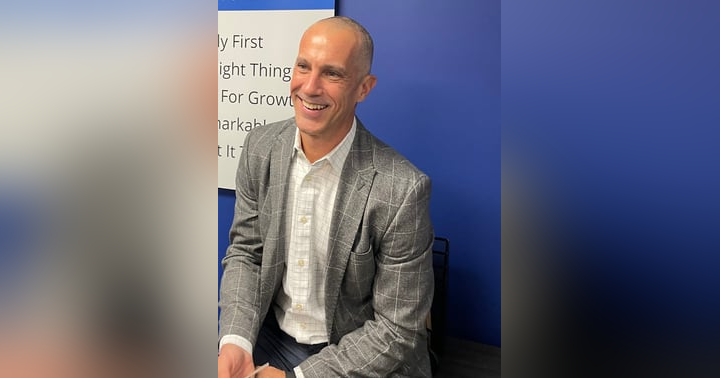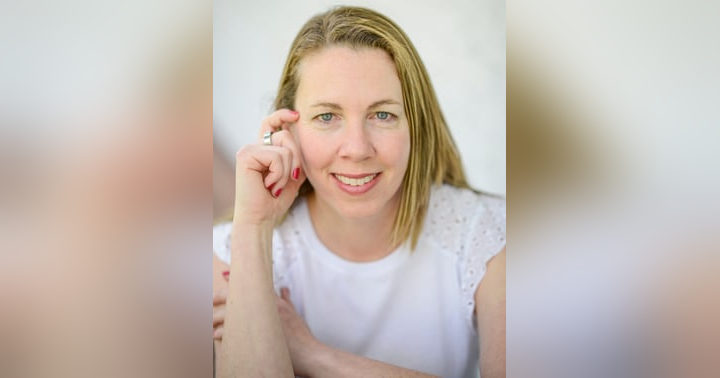
In today’s fast-paced world, it's easy to get lost in the noise of systems—be it educational, political, or economic. Yet, every so often, we encounter ideas that remind us of our inherent, unique human value. In a recent conversation with Michaell Magrutsche, a neurodiverse artist and thought leader, we explored the profound concept of living a more human-centric life, where individuality, creativity, and connection take precedence over system-driven expectations. Here’s a deeper dive into key insights from that conversation.
The Struggle of Fitting into Systems
From childhood, Michaell experienced challenges that many people face—feeling like he didn’t belong in the systems designed to govern our lives. Born neurodiverse and dyslexic, school became a place of frustration. The rigid structure of education, which prioritizes rote learning and system compliance, didn’t allow him to thrive.
But Michaell found salvation in art. His creative endeavors—whether through music, painting, or writing—allowed him to build self-esteem in ways the education system couldn’t. This speaks to a broader issue: many individuals don’t fit into systemic molds. Our uniqueness often goes unappreciated because systems aren’t built to recognize individual strengths but rather to streamline efficiency. For Michaell, and many others, self-expression through creativity became the key to personal liberation.
Human-Centric vs. System-Relevant Living
Michaell introduced two powerful concepts: human-centric and system-relevant living.
-
Human-Centric Living focuses on the innate uniqueness of every individual. It’s about embracing who you are, recognizing that you are “one of one.” This perspective moves beyond labels of gender, race, or societal roles and instead values the contributions each person can make based on their unique qualities.
-
System-Relevant Living, on the other hand, refers to the way society categorizes and expects individuals to fit into predefined roles to maintain the functionality of systems. It prioritizes economic productivity, political order, and educational outcomes over individual well-being.
One of the biggest takeaways from the conversation was how these two paradigms intersect in our lives, often leading to stress and dissatisfaction. Most of our problems, Michaell argues, stem from living system-relevantly—where human needs are secondary to the demands of the systems we live in.
The Importance of Creation
At the heart of Michaell’s philosophy is the power of creation. Whether it's creating art, building a business, or even just solving a small problem in your daily life, creation taps into an essential human need.
Creation builds self-esteem because it’s a direct expression of one’s individuality. It stands apart from the judgment of systems. Michaell poignantly shared how, as an artist, the process of creating was healing for him in a world where he didn’t feel “system relevant.” Creation is universal—it’s what makes us human. Whether you’re building skyscrapers or crafting a podcast, it is this innate drive to create that gives our lives purpose and meaning.
The Outdated Nature of Systems
Systems are designed by humans, but over time, they often become outdated. Michaell noted how, in many ways, systems are failing to keep up with the needs of humanity. Whether it’s the education system, which often still teaches in a one-size-fits-all manner, or the economic system, where people are constantly striving for “more” without ever feeling it’s enough, these structures no longer serve their original purpose effectively.
As a society, we’ve reached a point where it’s essential to separate human-centric needs from system-relevant demands. For example, instead of punishing an employee for taking time off to care for their child, a human-centric workplace would recognize that supporting the individual benefits the entire team in the long run.
Moving Towards a Balanced Future
So, how do we move forward into a more balanced, human-centric life within the systems we can't entirely escape? Michaell suggests the first step is awareness. Simply recognizing the difference between human-centric and system-relevant thinking can drastically change how we interact with the world.
This awareness allows us to navigate systems without losing sight of our individuality. As individuals, we can advocate for changes that make systems work for us—not the other way around. But most importantly, this awareness encourages us to place higher value on human connection, creativity, and compassion, rather than getting lost in the pursuit of system-based success.
Key Takeaways:
-
Embrace Your Uniqueness: Understand that you are “one of one” and that your value goes beyond what any system tells you.
-
Creation is a Superpower: Engaging in creative activities—whether personal or professional—builds self-esteem and allows you to contribute to the world in a meaningful way.
-
Systems are Outdated: Many of the systems we rely on were created with good intent but are no longer serving the needs of modern society. It’s time for an upgrade.
-
Awareness is Key: Simply being aware of the distinction between human-centric and system-relevant living can improve how you interact with the world and reduce stress.
-
We are All Creators: As humans, we thrive on collaboration and creation. Whether it’s a podcast, a painting, or a new way of thinking, we are all capable of contributing something unique.
Conclusion
In a world dominated by systems, it's easy to forget the power of individuality. Michaell’s journey serves as a reminder that by embracing our human-centric nature—our creativity, our uniqueness, and our interconnectedness—we can build a more fulfilling life. Rather than letting systems dictate our worth, we must recognize the immense value of simply being human.
Quote to Reflect On: "The opposite of war isn't peace, it's creation." – From the musical Rent
Links and Resources:
- Michaell Magrutsche’s Podcast: The Smart of Art
- Book: The Smart of Art: The New Art Consciousness – Available on Amazon
- Article: Human-Centric vs. System-Relevant Living on LinkedIn
Let’s continue the conversation. What are your thoughts on living a more human-centric life? Feel free to share in the comments!











